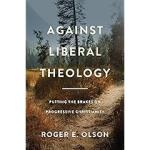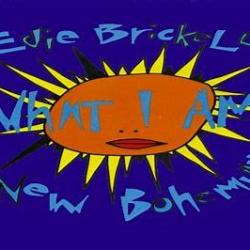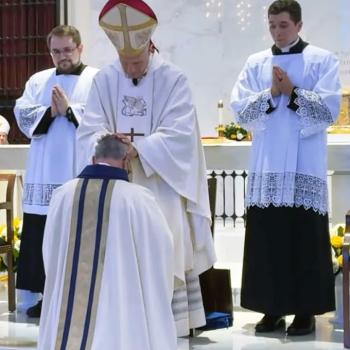All of this, according to Wheeler, is off-set by the fact that schools with church ties are teaching the majority of doctoral students and that 75 percent of the faculty who reported their activity in 2005 said that they "'often'" participate in local congregations. But no one can seriously believe that given all the other data provided by Auburn that this can be anything more than a "messy" reassurance, wrapped around a good deal of data that is not so reassuring. Anyone who has been in the academy for any time at all as either a student or a faculty member knows that "classical" disciplinary divisions and denominational labels are hardly indicators of what goes on in seminary classrooms. Seminary educations are dominated by the research and social agendas of individual faculty loosely categorized in the fourfold division of biblical studies, theology, history, and practical ministry. (A division that is not, as Wheeler suggests, "ancient," but a result of seminaries adopting the university model's division of fields of study.)
Wheeler's other charge is as follows:
Schmidt's prescriptions apply only to one relatively small sector of theological education. Schmidt teaches in a Methodist seminary, and he seems to assume that all theological schools are set in a "system" as regulated as that one, which still funds its sponsored seminaries at a significant (though decreasing) level and has some control over its ministry candidates' decisions about which school to attend.
Here the issue isn't one of proof, but perspective. I don't assume that "all theological schools are set in a 'system' as regulated as that one, which still funds its sponsored seminaries at a significant (though decreasing) level and has some control over its ministry candidates' decisions about which school to attend." Those are the schools and churches that I care about and that is at least one way in which churches could begin to get what they need from the schools. I am well aware that there are both schools and churches where that is not the case, but I wasn't writing about them or to them.
It is here that what Wheeler calls "the rollicking world of American religion" comes into play. In a backhanded paean to pluralism that she seems to imply is newly dominant within and without the church, Wheeler argues that seminaries and churches can no longer assert any control over how their clergy are formed. Nor, she seems to imply, should they have an unabashedly Christian identity. Either would apparently be a bad thing.
One can only make messy assumptions about why that would be bad, because she never explains what manner of evil would arise from having ordained leadership that is deeply schooled and formed in the Christian tradition. But here what we have is a difference of perspective, not messiness on my part.
We do live in a pluralistic society. We always have. This is nothing new.
In fact, like Philip Jenkins and others, I believe that there is good reason to believe that the American religious and spiritual experience has always been a "rollicking world" of diversity. If the '50s and '60s imposed a certain measure of order on that diversity, it was an exception, not the rule.
We need to live in that world that engages it graciously. But we also need to engage it critically. And if we don't have a distinctively Christian perspective from which to do that, then there is—from my point of view—no reason to "do church" at all.
But therein lies both the messy ecclesial and sociological problem for the church and its seminaries. To "belong" somewhere ecclesially and sociologically, is to name boundaries. To have boundaries entails naming what an institution needs from its leaders in knowledge, commitments, and practice. And without them life for the church is not just messy, it's untenable.





